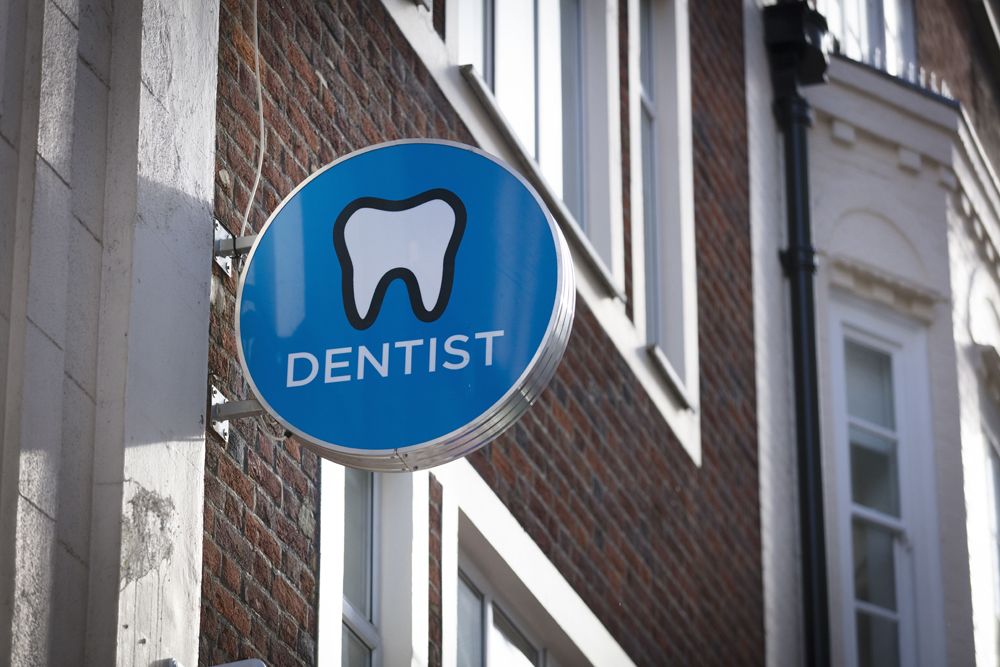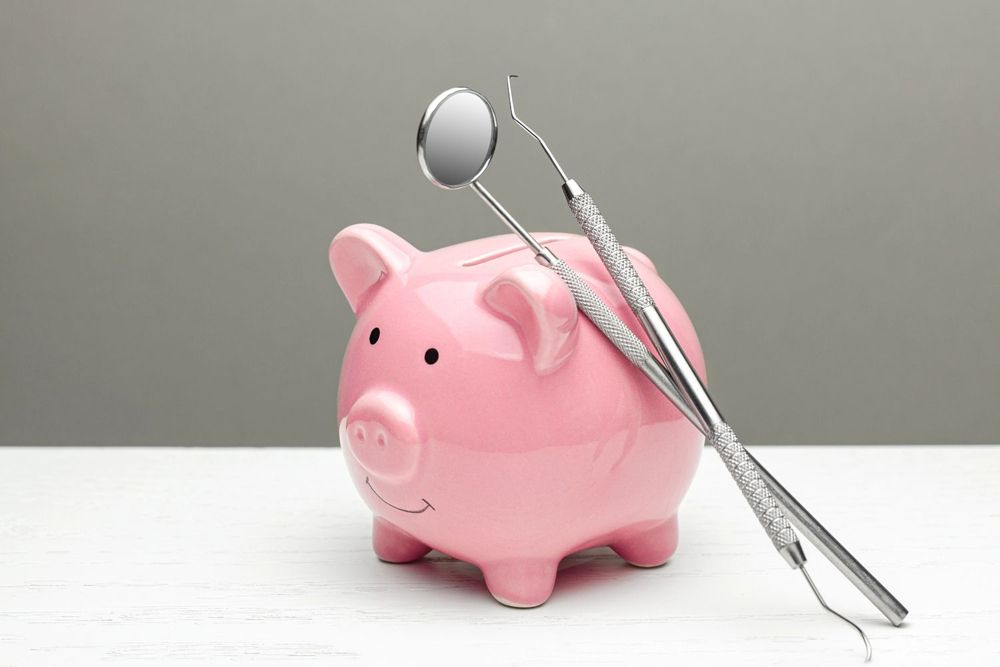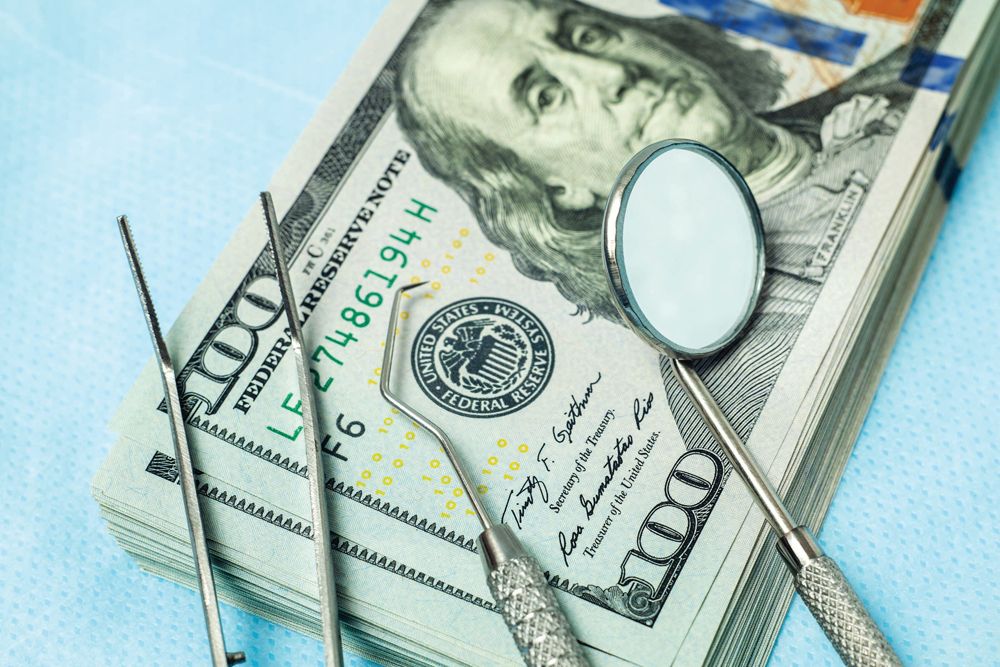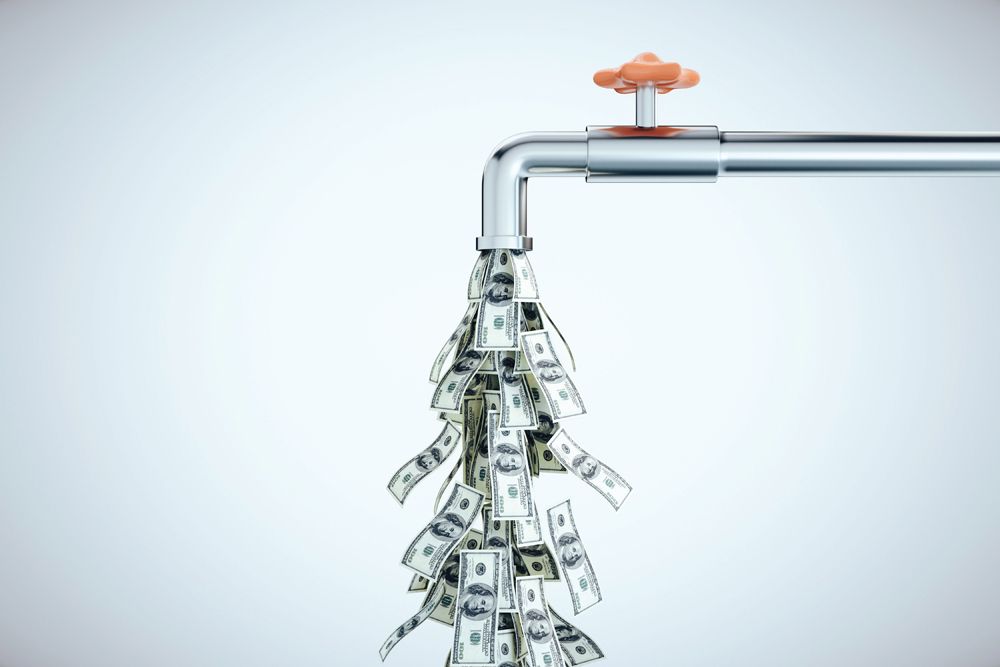- About Us
- Advertise
- Editorial
- Contact Us
- Terms and Conditions
- Privacy Policy
- Do Not Sell My Personal Information
© 2025 MJH Life Sciences™ and Dental Products Report. All rights reserved.
Dentist's Money Digest® — Top 10 Dentist's Money Digest Articles
Here’s another look at 10 of the top Dentist’s Money Digest® articles published in the past year. For more financial content, go to dentalproductsreport.com/finance.
The Dentist’s Money Digest® section of our website is filled with content designed to help dentists financially, whether to stay on track during challenging times, to plan for retirement, and even to prepare to sell your practice or to consider joining a dental service organization (DSO). This year’s top 10 list of articles addresses several important topics, including practice valuations during a pandemic, steps to prevent profits from leaking, capitalizing on industry optimism, and dealing with a divorce and its effects on a practice valuation.

Comparing Dental Practice Valuations During COVID-19
by Bruce Bryen, CPA, CVA
Evaluators need to be diligent in dental practice evaluations, but there are a variety of ways in which practices were valued before and during COVID-19. Expert dental practice evaluators had a difficult time with their presentations of dental practice value because of the pandemic. The typical methodologies and standards still had to be observed with the preparation of the reports, but there were so many deviations in value that, without statements explaining what had happened to the practice and the look back to the years when the dental office was successful, the valuation itself would be terribly misleading.

5 Things to Watch to Prevent Profits Leaking From Your Practice
by Phil Bride, MBA
Practices throughout the country suffer from leaking profits. No area of the practice is immune, and there are many. Here are the 5 biggest areas that typically lose profits: (1) recare, (2) treatment enrollment and scheduling, (3) patient experience, (4) accounts receivable, and (5) culture and leadership. Shoring up these areas of your practice can plug the profit leaks. If you successfully optimize these key areas, you have already gone a long way to stop leaking profits at your practice.

Paying Less Now May Cost More Later With a Divorce
by Bruce Bryen, CPA, CVA
Dentists need to be smart about paying for divorce. Hiring the best available practice valuation expert should be a strong consideration. When it comes to growth, state-of-the art technology and hiring of the best personnel, the owner of the dental practice is typically trying to make their office the foremost in the community. The money spent on the enhancement of the practice is almost always at the top of the list for the dentist to prepare the office for the expertise in the professional skill level, layout, and comfort for the staff and the patients.
Go to bit.ly/PayingLessNow

3 Ways Dentists Can Capitalize on Industry Optimism
by Chris Panebianco
There are a variety of ways dental professionals can use industry opportunity to expand and improve their practice. Despite a tumultuous past year, Vyne Dental’s State of Dentistry survey found that 86% of practice leaders are either confident (35%) or very confident (51%) in their practice’s future. This optimism is likely due to increased vaccination efforts, local economies reopening, and patients returning to in-office visits. Dentists can take advantage of this renewed optimism through investments in staffing, technology, and infrastructure to ensure they have the resources they need to be successful and prepared and to stand out from the competition.
Go to bit.ly/DentalOptimism

Timely Evaluation and Goodwill Allocation Analysis Are Required in Divorce Proceedings
by Bruce Bryen, CPA, CVA
A timely practice valuation and goodwill allocation are essential for the dentist and spouse going through a divorce. If the divorce is taking place in an equitable distribution state, the goodwill allocation is a prime consideration for the financial future of both parties. The dentist should make sure to receive both a goodwill allocation and a practice valuation from the evaluator. Irrespective of the length of the marriage, the divorce will have a serious impact on the dentist’s—and the spouse’s—finances. If each spouse is having a practice valuation prepared, their timeliness and accuracy will affect the opinion of the mediator or the court.

Should I Join a DSO? Should I Join an OSO?
by Bruce Bryen, CPA, CVA
Take a look at some of the pros and cons of potentially joining a dental or orthodontic service organization. For general dentists with some specialty skills and orthodontists who own their own dental practice, these hot issues are probably causing second thoughts about remaining with their individually owned practices. They are probably consulting with their dental CPAs and other financial advisers and getting information about what the dental service organizations (DSOs) and orthodontic service organizations (OSOs) have to offer that they are not receiving on their own. It is important for them to first understand what they are receiving from their own practices so they can make a good comparison.
Go to bit.ly/ShouldIJoinDSO

Steps You Need to Start a DSO
by Bruce Bryen, CPA, CVA
Capitalization, good advisers, and top-notch personnel make a successful dental service organization (DSO). When a group of professional dentists with a reasonable amount of capital and available credit are interested in starting their own dental service organization, good dental financial advisers can show them how to organize and run the operation. An alternative is for these dentists to buy into an existing DSO with its own issues, making an offer that includes their time, experience, and track records. It is much better to be on the ground floor of a start-up as a founder. The price of starting a new DSO will be lower, which may be a prime consideration for dentists.
Go to bit.ly/StepsToStartDSO

Purchasing Trends Changing for Dental Supplies, Products, and Practices
by Renee Knight
Dentists are starting to think differently about the purchases they make. For supplies and products, instead of primarily relying on large distributors as they have in the past, clinicians are seeking out other time- and money-saving alternatives. New platforms and group buying options are changing the playing field, and more dentists are taking advantage.

An Innovative Approach to Transitioning After the Pandemic
by Bruce Bryen, CPA, CVA
Deferred compensation arrangements enable sellers to pocket more money despite lower dental practice values. By now, we’ve all heard about how COVID-19 reduced the gross revenue of many dental practices across the country, forcing many to cut staff, reduce overhead, and use any available government loans to remain open. Because patients were concerned about possibly waiting in an office for their appointment with others who may or may not have been wearing masks, many were hesitant to book in-person dental appointments unless they were experiencing pain.
Related Content:


 Download Issue: Dental Products Report December 2021
Download Issue: Dental Products Report December 2021

